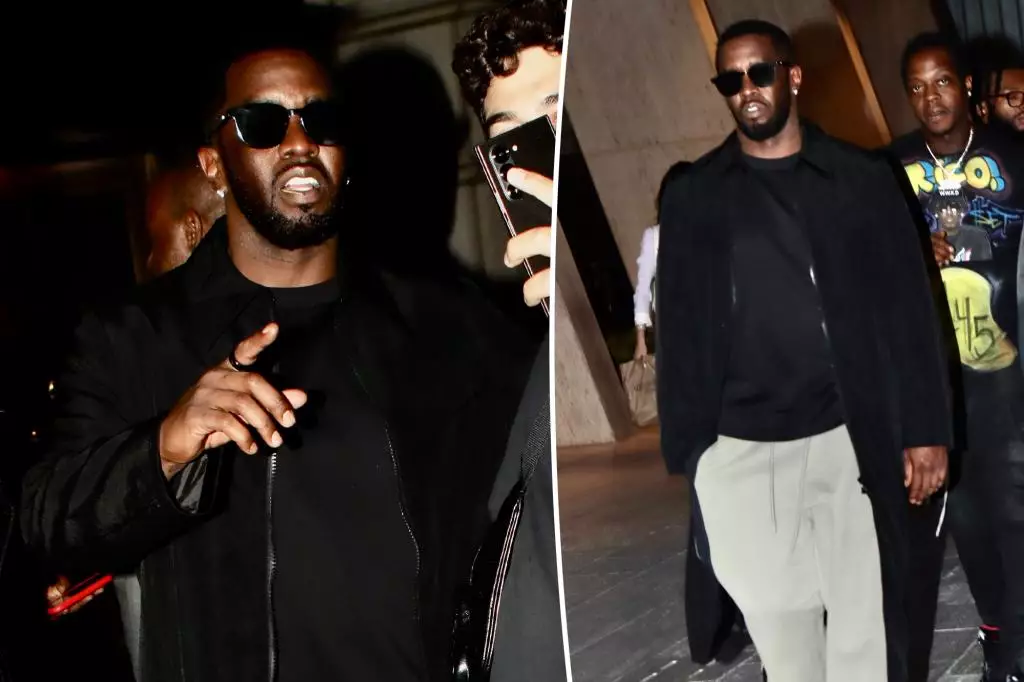Sean “Diddy” Combs, a celebrated figure in the music industry, has recently found himself at the center of a storm of legal challenges. His arrest at 26 Federal Plaza in New York City has raised eyebrows, drawing attention from media outlets and fans alike. While the precise charges remain ambiguous at this stage, the fact that Combs voluntarily traveled to New York suggests a proactive approach in dealing with the legal matters ahead. This episode is emblematic of a broader pattern; Combs has been dealing with allegations of sexual misconduct and abuse that have marred his celebrated public persona.
Legal representatives have already begun to mount a defense for the 54-year-old music mogul. Attorney Marc Agnifilo expressed disappointment over what he described as an “unjust prosecution” by the U.S. Attorney’s Office. Such statements cast doubt on the severity and validity of the accusations against Combs. Agnifilo emphasized Combs’s long-standing contributions to the community and his role as a devoted father and philanthropist. This favorable portrayal seeks to remind the public of the multifaceted nature of Combs’s identity, urging patience and understanding from observers until all facts come to light.
At the heart of the current events lie grave accusations made by Combs’s ex-girlfriend, Casandra “Cassie” Ventura. Her lawsuit, filed in November 2023, accuses Combs of rape and physical abuse, painting a disturbing picture of their 10-year relationship. Ventura claims she was subjected to severe mistreatment, including being coerced into sexual acts with male escorts. The explicit nature of these allegations represents a significant shift from the public persona Combs has famously curated over three decades spent in the entertainment spotlight.
The gravity of Ventura’s claims is only heightened by revelations of a video reportedly showcasing Combs physically assaulting her in a hotel room in 2016. While Combs has admitted to the behavior displayed in the footage, his assertion that he is seeking therapy and making strides toward personal reform introduces a complex backdrop. Interestingly, following Ventura’s allegations, multiple other women have come forward, accusing Combs of similar misconduct, including Joi Dickerson-Neal, who alleges she was raped by Combs while attending Syracuse University in the early ’90s. The growing number of accusations amplifies the stakes involved for Combs, who now faces serious legal ramifications.
The accusations against Combs are not merely an isolated incident; they contribute to an increasingly urgent conversation surrounding sexual misconduct in influential circles. In an era that demands accountability—from individuals to institutions—celebrities like Combs are subject to intensified scrutiny regarding their actions and reputations. Allegations of gang rape, sex trafficking, and racketeering have emerged alongside ongoing investigations involving federal agencies like Homeland Security conducting raids on Combs’s properties, raising questions about systemic issues at play.
Significantly, the consequences of these claims affect not only the individuals directly involved but also the broader cultural perceptions of power dynamics and gender relations. The music industry, which has often grappled with issues of sexism and abuse, finds itself at a critical juncture as figures like Combs face mounting allegations. In light of these developments, public discourse is increasingly prioritizing victim narratives and accountability over celebrity status.
In the wake of these accusations, Combs has maintained that he is not a criminal, framing his response as one of respect for the legal process. Despite the allegations, he consistently emphasizes his innocent stance, pledging cooperation with investigations and expressing a desire to clear his name. However, the nuances of his situation render it complex; while he is entitled to defend his legacy and reputation, public perception often operates on a different plane, heavily influenced by media narratives and social discourse.
As the legal proceedings unfold, it remains to be seen how these allegations will impact not only Combs’s career but also the broader music landscape. The case highlights the need for accountability, awareness, and the re-evaluation of power structures within the entertainment industry. The road ahead is uncertain, but it is clear that the implications surrounding Diddy extend far beyond his personal life, urging fans and critics alike to consider the broader societal context at play.

